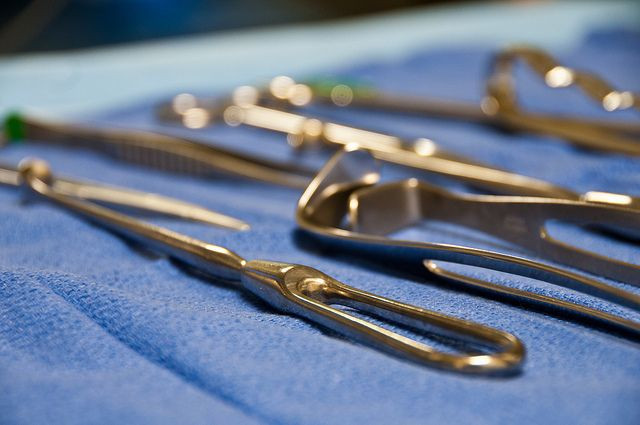New Bacteria Repelling Materials to Fight Hospital Infections and Save Lives

Researchers from the University of Nottingham have discovered a new kind of polymer that prevents bacteria from attaching themselves to medical equipment.
The discovery could save thousands of people who die from infections acquired from a hospital or due to medical devices that harbor infectious bacteria.
Bacteria, when under threat, develop a slimy layer around itself. This layer called as a biofilm, keeps the bacterial colony intact and also helps it stick to a surface.
The new polymers work by inhibiting biofilm formation at an early stage. These polymers can reduce the number of bacteria by almost 97 percent when compared to other commercially available materials like silver containing catheters.
“This is a major scientific breakthrough — we have discovered a new group of structurally related materials that dramatically reduce the attachment of pathogenic bacteria (Pseudomonas aeruginosa, Staphylococcus aureus and Escherichia coli)" Professor Morgan Alexander, from the School of Pharmacy, said.
The research team worked with experts from Massachusetts Institute of Technology (MIT) in screening hundreds of potential materials that could be used to protect surfaces from bacterial biofilm.
Biofim bacteria pose a bigger threat than individual bacteria because of their high number and are responsible for many diseases.
“Infections caused by microbial biofilms binding to the surface of implants often cannot be treated with conventional antibiotics. This makes them a significant challenge in patient care, particularly for those with inserted medical devices like catheters, heart valves and prosthetic joints," said Ted Bianco, Director of Technology Transfer at the Wellcome Trust.
This was an early-stage study. Researchers will next test these devices in clinical settings.
"The discovery of these new polymers is a great example of how advances in materials science are being exploited in our efforts to improve the performance of critical medical components. Just as materials science gave us the non-stick saucepan, so we look forward to the day of the ‘non-stick’ medical device," Bianco said in a press release.
The study was published in the journal Nature Biotechnology.
Published by Medicaldaily.com



























